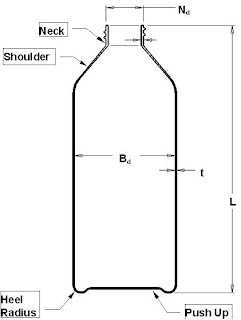Plastic pipes
The pipe sector is one of the most challenging construction sectors today. Economic pressures have led to fewer construction projects in many major markets, while specifiers have been increasingly expected to balance higher performance with reduced cost.
Today's plastics provide the opportunity to overcome these challenges. The economic and environmental benefits achieved by plastic pipe are an outcome of features including:
Zero corrosion — Plastics resist corrosion from water and many chemicals, reducing wear and tear and increasing longevity.
Increased flexibility — Easy to install, even at low temperatures.
Durable and tough material — Plastic pipes give a high resistance to fracture and fatigue
Leak-free joint fusion — Buttwelding, socket welding, electro-fusion fittings
Light weight materials — The light weight of plastic contributes to reducing man hours and the need for heavy equipment, such as cranes. Plastics are also easier to transport and store.
Easier installation and rehabilitation — The flexibility of plastics means that several components can be combined in one, making them easy to manufacture and install.
Higher flow-rate properties — These are sustained for the life of the pipe.
Greater lifetime expectancy — Plastics provide durable and tough solutions, meaning maintenance can be kept to a minimum.
Hygienic and clean delivery — Plastics are a hygienic choice particularly for water delivery systems.
Environmentally sound products — Plastic pipes are easy to install, meaning less environmental disruption. After use, plastic pipes can be re-used, recycled or even turned into a source of energy.
Cost-effective components — Plastic components are often more economical to produce than other materials in custom-made forms.
Industry-tailored options — Plastic pipes can easily be industry-tailored through color coding.
Today's plastics provide the opportunity to overcome these challenges. The economic and environmental benefits achieved by plastic pipe are an outcome of features including:
Zero corrosion — Plastics resist corrosion from water and many chemicals, reducing wear and tear and increasing longevity.
Increased flexibility — Easy to install, even at low temperatures.
Durable and tough material — Plastic pipes give a high resistance to fracture and fatigue
Leak-free joint fusion — Buttwelding, socket welding, electro-fusion fittings
Light weight materials — The light weight of plastic contributes to reducing man hours and the need for heavy equipment, such as cranes. Plastics are also easier to transport and store.
Easier installation and rehabilitation — The flexibility of plastics means that several components can be combined in one, making them easy to manufacture and install.
Higher flow-rate properties — These are sustained for the life of the pipe.
Greater lifetime expectancy — Plastics provide durable and tough solutions, meaning maintenance can be kept to a minimum.
Hygienic and clean delivery — Plastics are a hygienic choice particularly for water delivery systems.
Environmentally sound products — Plastic pipes are easy to install, meaning less environmental disruption. After use, plastic pipes can be re-used, recycled or even turned into a source of energy.
Cost-effective components — Plastic components are often more economical to produce than other materials in custom-made forms.
Industry-tailored options — Plastic pipes can easily be industry-tailored through color coding.



Comments